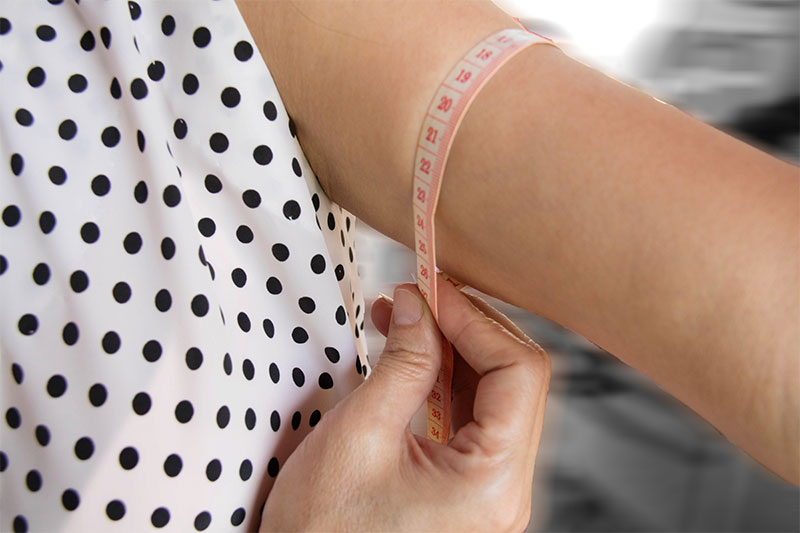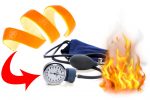
Do you know if you will die from heart disease? The size of your arm can reveal much more about your health than you might think. A person’s arm size can determine whether they will die from a heart attack.
Your Arm Size Matters More Than You Realize
How does arm size affect your heart? According to the American Journal of Cardiology, the bigger your arm muscle, the less likely you are to die of heart disease. Researchers studied six hundred older adults with cardiovascular disease. First, mid-upper arms and calves were measured. Then, researchers examined participants’ muscle function through gait speed and grip strength.
The researchers found that 72 of the adults – aged at least 65- died over a follow-up period that averaged about one and a half years. The results were more favorable for participants whose arms were larger. Heart disease mortality is associated with both measurements, according to research.
In contrast, arm circumference showed “significant independent prognostic capabilities.” Researchers concluded that people with larger arm muscles survived heart attacks better than those with smaller arm muscles. According to researchers, a simple measurement of the arm could also determine heart disease risk factors in older patients.
It Is Due To Muscle Deterioration
Keeping physically active declines with age for many people, especially seniors. Sarcopenia is the loss of muscle mass and strength as people age. Sarcopenia can be caused by a variety of factors, including the following:
- A change in hormones
- Exercise is less frequent
- Diseases that persist over time
- A decline in neurological function
- Nutritional deficiencies
The symptoms of sarcopenia include frailty, increased insulin resistance, fatigue, and falls. Diabetes and rheumatoid arthritis can also result from it and death.
People with larger, more muscular arms are less likely to die from a heart attack because arm muscle is a sign of a healthy and fit body. Therefore, it should be no surprise that exercise and improved nutrition can help prevent muscle loss.
You Need To Move More
Worldwide, 31 percent of all deaths are caused by cardiovascular disease, according to the World Health Organization (WHO). Heart attacks and strokes account for 80 percent of all cardiovascular disease deaths. The WHO recommends 30 minutes of daily physical activity to prevent heart attacks and strokes.
Strength training should be done at least twice a week, according to the American Heart Association (AHA). Strengthening your muscles allows you to perform everyday activities more efficiently and protects your body from injury. A more muscular body also boosts metabolism. As a result, you’ll burn more calories even when you’re at rest.
People who have had a heart attack can benefit from regular physical activity. Physical activity can reduce your chances of having another heart attack, says the AHA, even if you’re afraid to exercise after such a devastating event. An AHA statement published in 2014 recommended that stroke patients undergo exercise. Several studies have shown that exercising after a stroke can improve cardiovascular fitness, walking ability, and upper arm strength.
How Do You Know You Are Having A Heart Attack?
According to the Mayo Clinic, not everyone experiencing a heart attack experiences the same symptoms. Some people can experience mild pain, while others may experience more severe pain. Furthermore, some people have no symptoms, and sudden cardiac arrest may be the first sign. You’re more likely to have a heart attack if you’re experiencing multiple signs and symptoms. The following are some common signs and symptoms of a heart attack:
- An aching sensation or pressure in the chest or arms can spread to the neck, jaw, or back.
- An abdominal pain, nausea, indigestion, or heartburn feeling
- Breathing difficulties
- Feeling cold sweats
- Having an exhausted feeling
- Having a sense of lightheadedness or dizziness
According to the Mayo Clinic, some heart attacks strike suddenly, but others are preceded by warning signs and symptoms weeks, days, or even hours before they strike.
You Do Not Want To Wait If You Are Experiencing Any Of Those Symptoms!
Don’t hesitate to call 911 or your local emergency number if you believe you have a heart attack. Unfortunately, many people fail to recognize signs and symptoms, so they wait too long. You should be driven to a hospital if you do not have access to emergency medical services.
The Mayo Clinic advises taking nitroglycerin as a doctor prescribes while awaiting emergency assistance. While waiting for help to arrive, you may take aspirin if recommended by your doctor. By preventing blood clots, aspirin could reduce heart damage during a heart attack.
You should only take aspirin with the recommendation of your doctor or emergency medical personnel. Call 911 before doing anything else. The emergency operator may recommend aspirin. Your doctor will ensure you don’t have an allergy to aspirin or a condition that would make it dangerous.
It is recommended against taking aspirin during a stroke, according to the American Heart Association (AHA). Aspirin may not help all strokes since not all blood clots cause strokes. The AHA reports that ruptured blood vessels rather than clots cause some strokes. Bleeding strokes may therefore be made worse by taking aspirin. Your healthcare provider is the best person to tell you if aspirin therapy is right for you. Taking aspirin alone is never a good idea.
You Want To Care For Your Health
You can have a heart attack for various reasons, including your genes, what you eat, and how much you exercise. Science has recently discovered that arm size can be used as a marker of good health. It is important to remember that nothing is set in stone. You can significantly reduce your chances of having a heart attack by taking steps now. Healthy eating and exercise can strengthen your muscles and increase your arm size. Your ticker could become a time bomb if you act now.


